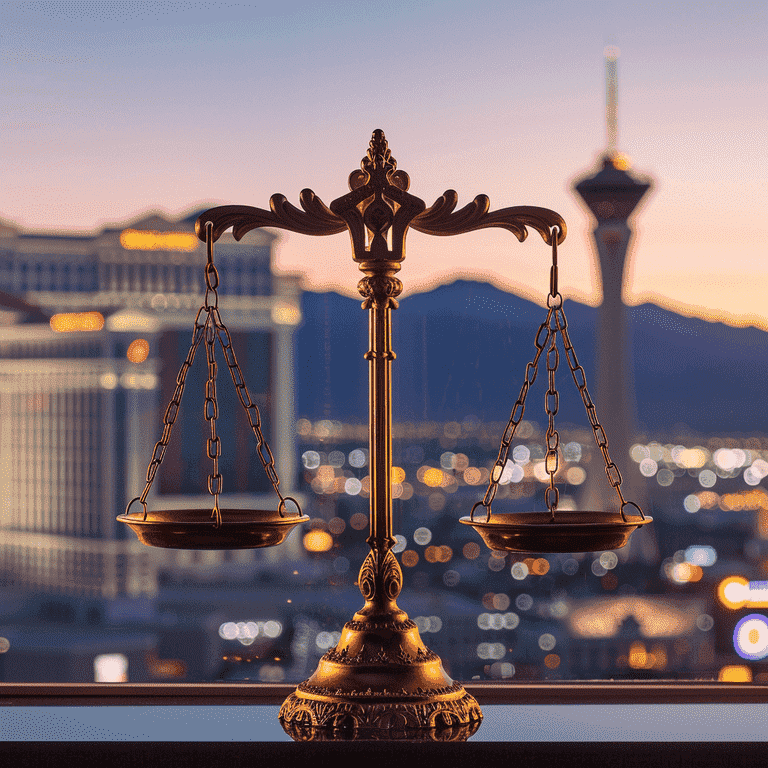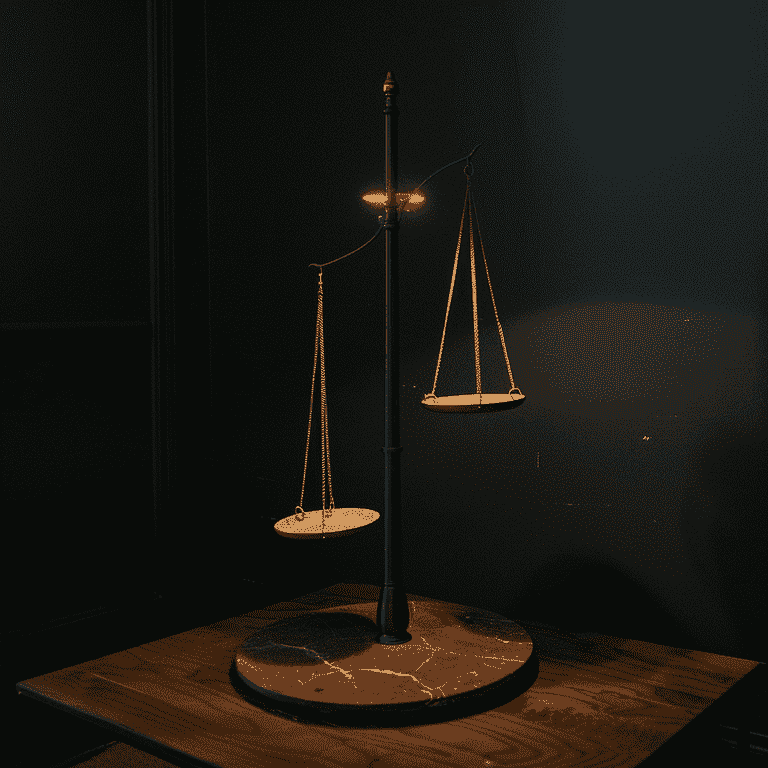How will preprosecution diversion effect your case?
Las Vegas has a reputation for its vibrant nightlife and bustling streets. But, it also has a side where legal mishaps can occur. Preprosecution diversion offers hope to those facing legal challenges. It’s in the heart of Nevada.
This program isn’t just about avoiding consequences. It’s a second chance for those who will work toward change. Our guide dives deep into what preprosecution diversion entails.
They ensure Las Vegas residents have the knowledge. They need it to navigate these waters.

What is Preprosecution Diversion?
Definition and Purpose
Preprosecution diversion is like a detour in the legal process. It lets eligible people avoid prosecution by doing rehab programs. This approach addresses the root issues. They caused the legal violation. It aims to prevent future offenses.
History and Evolution in Nevada
Nevada’s journey with preprosecution diversion reflects a broader shift toward restorative justice. Initially, the program had limitations. But, it has expanded to cover more offenses and people. This shows the state’s commitment to rehabilitation over punishment.

Eligibility for Preprosecution Diversion in Las Vegas
Understanding who qualifies for preprosecution diversion is crucial for accessing this opportunity. The criteria aim to find who will benefit. They focus on rehabilitation.
General Eligibility Criteria
Eligibility typically hinges on several factors:
First-time Offenders: Priority is given to those without prior convictions, offering a clean slate to individuals who have stumbled legally for the first time.
Specific Charges Eligible for Diversion: The program is not a one-size-fits-all solution. Eligibility is often restricted to non-violent misdemeanors and select felonies, emphasizing the program’s rehabilitative over punitive intentions.
Limitations and Exclusions
Not everyone is eligible for preprosecution diversion. The program sets clear boundaries around the following:
Types of Offenses Not Eligible: Serious crimes, particularly those involving violence, are generally excluded, underscoring the program’s focus on rehabilitation.
Impact of Previous Convictions: A history of prior legal issues can disqualify individuals, reinforcing the program’s aim to serve as a first-time intervention.

Benefits of Preprosecution Diversion
Joining a preprosecution diversion program has many benefits. They go far beyond just avoiding legal trouble.
Avoidance of a Criminal Record: Successful completion can lead to the dismissal of charges, keeping participants’ records clean.
Educational and Rehabilitative Opportunities: Tailored programs address the root causes of the legal issue, offering a path to personal growth and development.
Community Service: Participants often engage in community service, providing a means to give back while reflecting on their actions.
Restitution and Victim Reconciliation: When appropriate, the program facilitates restitution to victims, fostering healing and accountability.
Preprosecution diversion in Las Vegas offers more than just a way to avoid prosecution. It provides a path to rehabilitation and a second chance for those who take it. Understanding this process will help people facing legal challenges. It will help them navigate more confidently and hope for a positive outcome.

The Process of Preprosecution Diversion
Navigating the preprosecution diversion process can feel like embarking on a journey. It’s a journey through uncharted territory. But fear not! The path becomes clear with the right map and compass. It leads to a place of growth and second chances.
Initial Assessment and Application
The first step on this journey is the assessment and application phase. The legal system closely examines who you are and your offense. It does this to decide if the diversion program is a good fit.
Interaction with Law Enforcement: This often starts at the beginning of your legal encounter. Law enforcement officials may recommend diversion. They do this based on their initial assessment of your situation.
Role of Defense Attorneys: A skilled navigator in these waters, your defense attorney plays a crucial role. They can argue for your eligibility, helping to steer your application through the legal currents.
Program Requirements and Duration
Once you’re deemed eligible, the real work begins. The program is not just an escape from jail. It’s a commitment to personal growth and change.
Monitoring and Compliance Checks: Regular check-ins ensure you stay on course, like waypoints on a map.
Educational Program Specifics: Depending on your situation, you might participate in programs focusing on substance abuse, anger management, or other relevant areas. These are your milestones, marking progress on your journey.
Successful Completion and Its Implications
Reaching the end of the diversion program is akin to discovering treasure at the end of a treasure hunt. It’s not just about what you find; it’s about who you’ve become along the way.
Expungement of Charges: Completing the program can lead to your charges being dismissed, clearing the slate.
Possible Outcomes for Non-compliance: It’s important to navigate carefully. Straying from the path can lead to being back where you started, facing prosecution for the original charges.

Role of Defense Attorneys in Preprosecution Diversion
In the maze of legal proceedings, defense attorneys are your guides. They have the knowledge and skill to navigate the twists and turns of the diversion process.
Navigating the Application Process
From the start, your defense attorney is key. They chart the path to eligibility in the program.
Legal Advice and Representation: They provide the compass you need, offering advice that points you in the right direction and representation that advocates for your best interests.
Negotiating Terms with Prosecutors: Your attorney can negotiate the terms of your diversion, ensuring they are tailored to your unique situation and needs.
Ensuring Compliance and Advocating for Clients
Your journey through diversion is not one you make alone. Your defense attorney walks with you. They make sure you meet program requirements and speak for you if challenges arise.
Monitoring Progress: They watch your progress, ready to intervene if you veer off course.
Advocating for Completion: Upon reaching the end of your program, your attorney champions your successful completion, advocating for the benefits you’ve earned through your hard work and dedication.

Impact of Preprosecution Diversion on the Community
The effects of preprosecution diversion ripple out. They go far beyond the participants, touching the community deeply.
Reduction in Recidivism Rates
Diversion programs address the root causes of crime. They help break the cycle of reoffense, leading to safer communities.
Economic Benefits of Diversion Programs
The cost savings for the courts are big. They free up resources. The resources can go to other community needs.
Cost Savings for the Judicial System: Fewer court cases mean reduced strain on judicial resources.
Impact on Public Safety and Welfare: Programs that rehabilitate rather than punish contribute to the overall safety and well-being of the community.

Challenges and Criticisms of Preprosecution Diversion
Preprosecution diversion offers hope for many. But, it’s not without its twists. As we delve into the complexities, we must shine a light on the hurdles and hear the whispers of critique that echo through the halls of justice.
Accessibility and Fairness Concerns
Imagine standing at a crossroads. One path is less traveled. Not because it’s less appealing. But, because not everyone knows it exists or has the means to take it. This scenario mirrors the accessibility and fairness concerns surrounding preprosecution diversion.
Evaluation of Eligibility Criteria: The gates to this path are guarded by criteria that some argue are too narrow, leaving behind those who might also benefit from a journey of redemption.
Diverse Impact: The effectiveness and fairness of diversion programs can vary widely across different communities and individuals, raising questions about equity and justice.
Accountability and Effectiveness of Programs
Evaluating preprosecution diversion programs is like sailing the vast ocean. The waters are deep and the currents are strong. We need accountability as our compass on this voyage.
Balancing Rehabilitation with Public Safety: Striking the right balance between offering offenders a lifeline and ensuring the community’s safety and well-being is a delicate dance.
Regular Assessment and Adaptation: Like any seasoned navigator, those steering the ship of diversion programs must constantly adjust their course based on the stars of feedback and evaluation.
Why You Have Not Hired a Felony Defense Attorney Yet
Watch this short video to take the next big step toward defending your rights against a felony charge.

Breaking It All Down
As we draw the map of our journey to a close, let’s reflect on the landscape we’ve traversed. Las Vegas’ preprosecution diversion does more than offer an escape from legal trouble. It’s a path to personal growth, a bridge to community safety, and a testament to the power of second chances.
Summary of Key Points
A New Beginning: For those who find themselves at a crossroads, preprosecution diversion provides an opportunity to choose a different path that leads away from the shadow of prosecution and towards the light of rehabilitation.
The Role of Guidance: Like any quest, the journey through diversion is best navigated with a knowledgeable guide. Defense attorneys play a crucial role in charting the course, ensuring that those who embark on this path reach their destination.
Community Impact: The ripple effects of diversion programs extend far beyond the individuals they serve, touching the lives of community members by fostering safer, more supportive environments.
The Future of Preprosecution Diversion in Las Vegas
As the sun sets on our exploration, we’re left to ponder the horizon. The future of preprosecution diversion in Las Vegas is not set in stone. It’s living and breathing. It’s shaped by the hands of those it serves and the community it enriches. Continuous improvement will keep this path open to all seeking a second chance. Compassion, understanding, and a firm commitment to justice fuel it.
Encouragement for Eligible Individuals to Seek Legal Advice
If you stand at a crossroads, consider this a sign to seek the guidance of a legal navigator. With the right support, preprosecution diversion can lead to new beginnings. It offers a chance to rewrite your story with a hopeful pen.

More Frequently Asked Questions
What happens if I don’t complete the requirements of the preprosecution diversion program?
If you don’t follow the program’s rules, they might reinstate the original charges against you. The diversion program agreement is like a contract. Not fulfilling your end voids it. The legal proceedings can then continue. They act as if the diversion had never been granted.
Can I apply for preprosecution diversion if I have a felony charge?
Eligibility for preprosecution diversion varies. It depends on the laws and guidelines in Las Vegas. Many diversion programs focus on misdemeanors. Some also accept non-violent felonies. It’s crucial to consult with a legal professional to understand your specific situation.
How does preprosecution diversion affect my employment prospects?
Completing a preprosecution diversion program can significantly positively impact your employment prospects. Completion often leads to dismissing charges. So, you may not need to disclose a conviction on job applications. This depends on local laws and the job. But, it’s vital to be truthful about your history. You must do this if asked about arrests or diversion in some cases.
Is participation in a preprosecution diversion program public record?
Your visibility in a diversion program depends on local laws. It also depends on the program’s specifics. Sometimes, successful completion may result in sealing or not publicly accessible participation records. Talking to a defense attorney can clarify how joining might affect your record.
Can I be expelled from the preprosecution diversion program?
The program can expel people for many reasons. These include not following the agreed-on conditions. Also, failing drug tests (if needed) or committing new offenses. Expulsion typically leads to the resumption of the original prosecution process.
Does completing a preprosecution diversion program guarantee my charges will be dismissed?
Completing a diversion program often clears charges. But, it’s not guaranteed. The agreement made at the program’s start outlines the conditions for dismissal. Fulfilling these conditions is typically required for the charges to be officially dismissed.
Can I participate in preprosecution diversion more than once?
The program is for first-time offenders or those with little criminal history. It provides the opportunity to participate. If you’ve already done a diversion program, you’re less likely (though not impossible) to do it again. Eligibility for multiple participations varies by jurisdiction and specific circumstances.
How is preprosecution diversion the right choice for me?
Deciding to enter a preprosecution diversion program is a big choice. It depends on your situation, your case’s specifics, and your goals. Talking to a smart defense attorney can help you weigh the pros and cons. You can also understand the commitments and see if this path is in your best interests.
Are there any costs associated with participating in a preprosecution diversion program?
Yes, some pretrial diversion programs require participants to pay for classes. They may also need to pay for treatment or monitoring. These costs can vary widely depending on the program’s requirements. You must consider these costs. They are key when deciding to join a diversion program.

Glossary
Preprosecution Diversion: A legal process allowing certain offenders to participate in specific programs instead of going through the traditional criminal justice system, aiming to rehabilitate the individual and prevent future offenses.
Eligibility Criteria: The specific conditions and requirements that determine whether an individual can participate in the preprosecution diversion program, often based on the nature of the offense and the individual’s legal history.
Non-violent Misdemeanors: Minor offenses that do not involve harm or the threat of harm to a person may qualify for diversion programs depending on local laws and guidelines.
Low-level Felonies: Less serious felony charges are considered for diversion programs, characterized by lower degrees of harm or risk to public safety.
Expungement: The legal process of removing an arrest or conviction from an individual’s public criminal record, often a potential outcome of completing a diversion program.
Recidivism: The act of reoffending or falling back into criminal behavior after having been previously arrested or convicted.
Restorative Justice: A legal philosophy focusing on rehabilitating offenders through reconciliation with victims and the community, emphasizing healing and making amends over punitive measures.
Legal Representation: The act of being defended by a lawyer in legal proceedings. In preprosecution diversion, legal representation is crucial for negotiating eligibility and ensuring compliance with program terms.
Compliance Checks: Regular monitoring activities to ensure that an individual participating in a diversion program is adhering to the prescribed conditions and requirements.
Substance Abuse Programs: Rehabilitative programs aimed at helping individuals overcome addiction to drugs or alcohol, often a component of preprosecution diversion for offenses related to substance abuse.
Anger Management Courses: Educational programs designed to help individuals understand and control anger and aggression, potentially required as part of a diversion program for offenses involving aggressive or violent behavior.
Community Service: Volunteer work enforced as a condition of preprosecution diversion, intended to benefit the community and offer the offender an opportunity to make amends for their actions.
Victim Reconciliation: A process where offenders are encouraged or required to make amends to their victims, aiming to repair harm and foster healing, sometimes included in diversion program requirements.
Judicial System: The system of courts that interprets and applies the law in legal cases. The preprosecution diversion process operates within this framework, offering an alternative path to traditional prosecution.

Additional Resources for You
Our lead attorney, Molly Rosenblum, Esq., is dedicated to providing comprehensive legal resources to assist you in your time of need. Beyond the guidance offered in our discussions on preprosecution diversion, Molly has created a suite of valuable resources to further aid in understanding various legal concepts and scenarios you might encounter. We encourage you to explore these resources for deeper insights and support:
Double Jeopardy: A fundamental legal principle preventing an individual from being tried twice for the same offense.
Hung Jury: Occurs when a jury cannot reach a unanimous decision, leading to a mistrial.
Circumstantial Evidence: Evidence that implies a fact or event without directly proving it, often pivotal in legal proceedings.
Indicted Vs Charged: Clarifies the difference between being formally accused of a crime (indicted) and having charges filed against you (charged).
Difference Between Jail And Prison: Explores the distinctions in terms, usage, and conditions between jails and prisons.
What Are Miranda Rights: An essential read on the rights of individuals in police custody, crucial for protecting one’s self during legal encounters.
How To Check If You Have An Outstanding Warrant: Provides guidance on how to find out if there is an outstanding warrant for your arrest.
What To Look For In A Criminal Defense Lawyer: Offers advice on selecting a competent and effective criminal defense attorney.
Possible Ways To Reduce A Felony Charge: Discusses strategies that may be employed to lessen the severity of a felony charge.
Should You Accept A Plea Bargain: A critical examination of plea bargains and their implications for the accused.
These resources were meticulously prepared to empower you with knowledge, helping you navigate the complexities of the legal system with greater confidence and understanding.

Outside Resources for You
To further support your journey through the legal landscape of Las Vegas and beyond, here are seven offsite resources that offer valuable information and assistance. Whether you’re seeking deeper insights into legal processes, looking for support, or needing more comprehensive guides on various legal topics, these resources can be incredibly useful:
American Bar Association (ABA): A premier national legal organization providing resources, education, and initiatives aimed at improving the legal profession and supporting legal practitioners and law students.
National Association of Criminal Defense Lawyers (NACDL): An organization focused on ensuring justice and due process for persons accused of crimes or other misconduct. A comprehensive resource for legal defense professionals.
Justia: Offers a wealth of legal information, including free access to case law, codes, regulations, and legal articles. An excellent starting point for legal research and education.
FindLaw: Provides a broad range of legal resources, including articles on various areas of law, a lawyer directory, and information on legal rights and responsibilities.
National Legal Aid & Defender Association (NLADA): Dedicated to providing legal services and support to those unable to afford legal representation. A great resource for finding legal aid and advocacy support.
Public Defender Service for the District of Columbia (PDS): Although specific to the District of Columbia, PDS’s website offers insights into the workings of one of the most respected public defender offices in the United States, which could be informative for those interested in criminal defense and public legal services.
The Innocence Project: Focuses on exonerating wrongfully convicted individuals through DNA testing and advocating for legal system reform. An important resource for understanding and combating wrongful convictions.

A Special Message from Our Lead Attorney, Molly Rosenblum Allen, Esq

Dear Reader,
Thank you for taking the time to explore the resources we’ve shared. I hope you have found them informative and helpful in understanding more about your legal rights and options. At The Rosenblum Allen Law Firm, we are committed to supporting and guiding those navigating the complexities of the legal system.
If you have questions or concerns, or want to discuss your situation, I invite you to schedule a free consultation with us. You can reach us by calling (702) 433-2889. Whether you’re seeking advice on preprosecution diversion or any other legal matter, our team is here to help. We will offer the personalized and kind support you deserve.
Looking forward to the opportunity to assist you,
Molly Rosenblum Allen, Esq.


